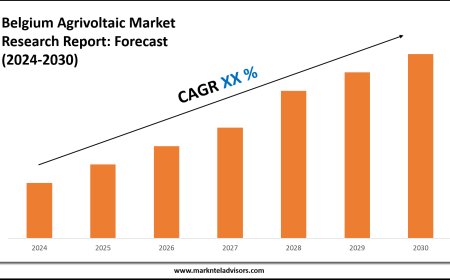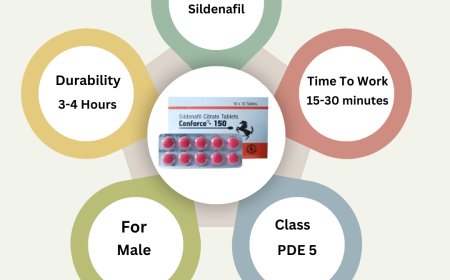Breast Cancer Prevention with Ralista 60: Who Should Consider It?
Breast cancer remains one of the most common cancers affecting women worldwide. While early detection and treatment have improved survival rates, prevention remains a critical focus—especially for women at higher risk.

Breast cancer remains one of the most common cancers affecting women worldwide. While early detection and treatment have improved survival rates, prevention remains a critical focusespecially for women at higher risk. One medication that plays a significant role in reducing breast cancer risk is Ralista 60 (Raloxifene Hydrochloride 60 mg). Originally approved for treating osteoporosis, Ralista has proven benefits in lowering the risk of hormone receptor-positive breast cancer in postmenopausal women.
But who should consider buy raloxifene for breast cancer prevention? In this detailed article, DosePharmacy explores its uses, benefits, side effects, and the profile of women who may benefit most from this therapy.
What Is Ralista 60?
Ralista 60 contains Raloxifene hydrochloride, a selective estrogen receptor modulator (SERM). It mimics estrogens positive effects on bones while blocking its negative effects on breast and uterine tissues. This dual action makes Ralista a unique medicationapproved for both osteoporosis treatment and reducing the risk of invasive breast cancer in postmenopausal women.
Each Ralista 60 tablet contains 60 mg of raloxifene hydrochloride and is typically taken once daily, with or without food.
How Does Ralista 60 Help Prevent Breast Cancer?
Breast cancer often develops in response to estrogen. In estrogen receptor-positive (ER+) breast cancers, estrogen promotes the growth of cancerous cells. Ralista 60 binds to estrogen receptors in breast tissue, blocking estrogen's ability to stimulate these cells.
By acting as an estrogen antagonist in breast tissue, Ralista 60 can reduce the likelihood of abnormal cell growth and tumor formation, particularly in women who are at elevated risk for hormone-driven breast cancer.
Ralista has been shown in clinical studies, such as the STAR trial (Study of Tamoxifen and Raloxifene), to significantly reduce the risk of invasive breast cancer in postmenopausal women with osteoporosis or a family history of breast cancer.
Who Should Consider Ralista 60 for Breast Cancer Prevention?
Ralista 60 is not suitable for everyone. However, certain groups of women may benefit from using this medication as a preventive measure:
1. Postmenopausal Women at High Risk
Ralista is indicated for postmenopausal women with a high risk of developing invasive breast cancer, especially those with:
-
A family history of breast cancer (mother, sister, daughter)
-
Prior diagnosis of lobular carcinoma in situ (LCIS) or atypical hyperplasia
-
A personal history of benign breast disease
-
Risk factors like obesity, early menstruation, or late menopause
A healthcare provider can use tools such as the Gail Risk Model to assess a womans 5-year risk of breast cancer. If the risk is elevated, Ralista may be considered.
2. Postmenopausal Women with Osteoporosis
Ralista 60 is often prescribed to treat osteoporosis, but it has the added benefit of reducing breast cancer risk. For women who need bone protection and have moderate cancer risk, Ralista serves a dual-purpose therapy.
3. Women Seeking Non-Hormonal Preventive Options
Unlike hormone replacement therapy (HRT), which may increase breast cancer risk, Ralista does not increase the risk of breast or endometrial cancers. Women seeking safer alternatives to HRT for bone health or cancer prevention may consider this option.
Who Should Not Take Ralista 60?
Ralista is not for everyone. It is not recommended in the following situations:
-
Premenopausal women
-
Pregnant or breastfeeding women
-
Women with a history of venous thromboembolism (blood clots), including deep vein thrombosis (DVT) or pulmonary embolism
-
Women with active liver disease
Always consult a physician before starting Ralista, especially if you have underlying health conditions or take other medications.
Benefits of Ralista 60 for Breast Cancer Prevention
-
Reduced Risk of Invasive ER+ Breast Cancer
Studies show that Ralista can reduce the incidence of invasive hormone-receptor-positive breast cancer by up to 50% in high-risk women. -
Bone Health Support
Ralista is approved for the treatment and prevention of osteoporosis. It helps improve bone mineral density and lowers fracture risk. -
No Uterine Cancer Risk
Unlike tamoxifen, another SERM, Ralista does not increase the risk of uterine cancer, making it a safer long-term option. -
Well-Tolerated for Long-Term Use
Many women tolerate Ralista well with relatively few serious side effects over extended periods.
Possible Side Effects of Ralista 60
Although generally safe, Ralista 60 can cause some side effects. Common and serious ones include:
Common Side Effects:
-
Hot flashes
-
Leg cramps
-
Joint or muscle pain
-
Flu-like symptoms
-
Swelling in hands or feet
Serious Side Effects (Rare):
-
Blood clots (deep vein thrombosis, pulmonary embolism)
-
Stroke (especially in women with cardiovascular risk)
-
Sudden leg pain or chest pain (seek medical help immediately)
Monitoring Tips:
-
Report any symptoms of leg swelling, chest pain, or difficulty breathing.
-
Avoid long periods of inactivity (such as long flights).
-
Maintain regular follow-ups and bone density tests as prescribed.
How to Take Ralista 60 Safely
-
Take one 60 mg tablet once daily at the same time each day.
-
Can be taken with or without food.
-
Do not crush or chew the tablet.
-
Stay active to reduce the risk of blood clots.
-
Ensure adequate calcium and vitamin D intake, as recommended by your doctor.
Where to Buy Ralista 60?
You can buy Ralista 60 mg tablets online at DosePharmacy. We offer:
-
Genuine medication from trusted manufacturers
-
Competitive pricing and discounts
-
Secure payment and fast, reliable delivery
-
Assistance with prescription requirements
Always consult a licensed healthcare provider before purchasing or using Ralista for breast cancer prevention.
Conclusion
Ralista 60 is a powerful medication that serves a dual purposeimproving bone health and reducing the risk of invasive breast cancer in postmenopausal women. It is particularly suitable for women at high risk of hormone receptor-positive breast cancer and those who also require osteoporosis treatment. However, it is not appropriate for everyone and must be used under medical guidance due to the risk of serious side effects like blood clots.
If youre a postmenopausal woman concerned about your breast cancer risk or managing osteoporosis, speak to your doctor about whether Ralista 60 is right for you. At DosePharmacy, we are committed to offering you high-quality medications and the information you need to make informed health decisions.




































